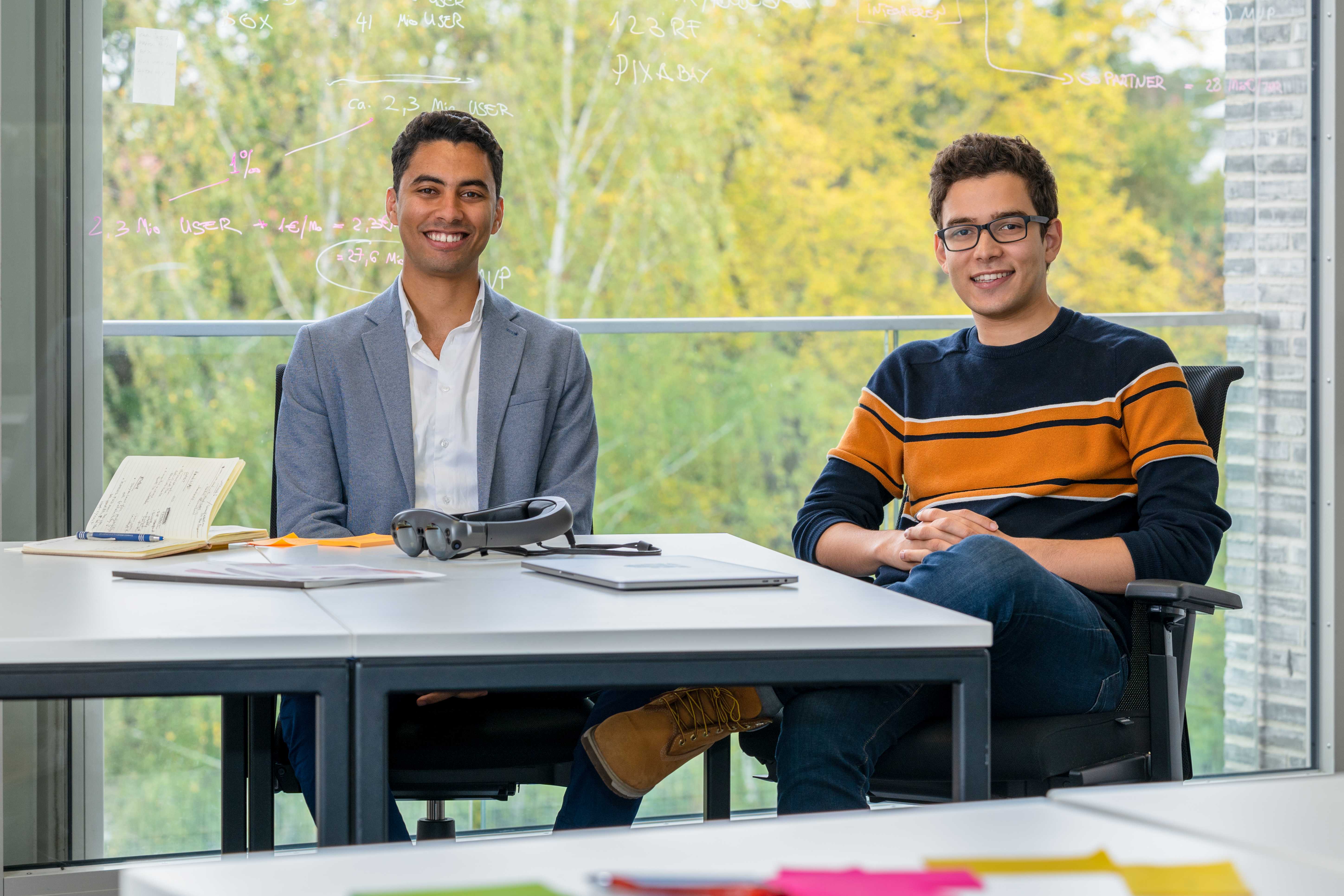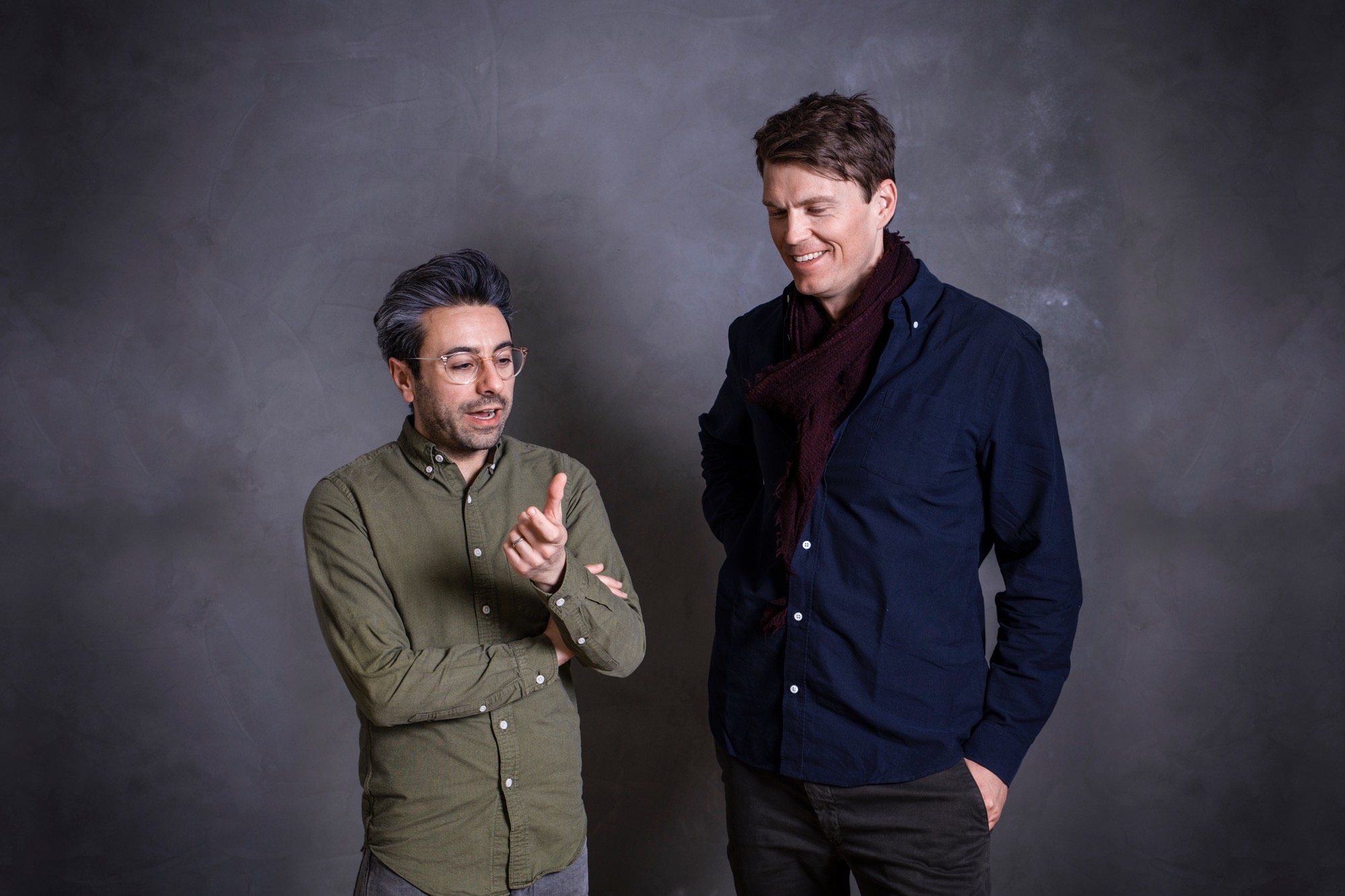Silicon Allee: Building a founder-friendly interface for Berlin
“firma.de helped me as a founder set up my personal holding company. It’s something that would have likely been very bureaucratic but was a couple of clicks with them.”
Key results:
- Our online services meant Silicon Allee co-founder Travis could start his holding company in a couple of clicks.
- As an incorporation service we kept bureaucracy and costs low for this early-stage venture.
Services used with firma.de:
Find the right legal form
The business
Americans in Berlin
Silicon Allee® is the brainchild of entrepreneurs Schuyler Deerman and Travis J. Todd. Heavily influenced by their US roots (including stints in San Francisco), they set out to build the kind of community that helps keep tech hubs healthy in Berlin.
Internationals helping internationals
Germany can be a very conservative place. The ‘first wave’ of Berlin startups in the ’00s were clones of already proven US companies tweaked for the German market. Nothing overly creative or globally-minded was getting started.
Despite all this, by the time the 2010s rolled around, Berlin’s tech scene was about 50% non-German folk. Even though Berlin’s startup scene was becoming increasingly international, it was out of sync with the rest of the world. What was missing was a portal for Berlin’s technologists not only to connect with one another but also to the outside world. Silicon Allee was born out of necessity.
The obstacles
To turn Silicon Allee into the real deal, its founding team had to run the gamut of German bureaucracy. Germany isn’t the most welcoming place for founders. In many ways, it’s resistant to modern notions of entrepreneurship. Founders have to grapple with many regulations and heavy taxation when doing business in Europe’s economic engine.
Taxes taxes taxes
Germany is the land of taxes. There is a deeply ingrained belief that saving money is the highest virtue. This belief could be the reason why Germany has had eye-watering high taxes despite impressive budget surpluses (the COVID-19 crisis complicates this of course).
As a founder in Germany with big exit ambitions (or even just a decent payday) if you get your legal structure wrong, expect to pay high taxes.
Nothing can be said to be certain except death and taxes (and bureaucracy)
Taxes and bureaucracy go together like a horse and carriage. It’s no surprise that Germany is big on regulations as well as taxation.
For example, despite being an economic powerhouse, the World Bank and International Finance Corporation (IFC) rank Germany 106th in the world for ease of starting a business, largely due to the hoops founders have to jump through. (By our count, there are ca. 20 steps in the company incorporation process.)
Germany is not a startup-friendly place
Viable businesses must minimise three key things: liability, taxation and overheads. But, in Germany, keeping these things in check can be tricky.
Forming a holding structure is the way to reduce a business’s liability and tax burden, but it is a hyper-bureaucratic process that is time-intensive. To avoid going through this, many founders outsource the incorporation process to a lawyer. But, this incurs hefty costs. What’s an early-stage founder supposed to do?
The way
What do you do when you live in a country entangled in red tape? One that crushes your entrepreneurial spirit? You enlist other entrepreneurs to help you battle the bureaucracy.
A holding company is an entrepreneur’s best friend
Founders prefer holding companies because, financially speaking, it’s the only thing that makes entrepreneurship worthwhile.
A holding structure is a way that companies can optimise taxation in Germany. According to current legislation, 95% of the profit from the sale of a subsidiary is tax-free. Only the last 5% is taxed at the usual rate of about 30%. In other words, the tax liability of this type of company disposal is approximately 1.5% (§ 8 para. 1 KStG).
And, because a holding setup creates a matrix of separate legal entities, it’s the best way to limit liability too.
The gang behind Silicon Allee were clever from the very beginning, realising that holding structure was the way to go.
Avoiding big overheads (Or: The problem with lawyer-led formations)
A holding structure may be the answer, but the question remains: How do you set one up without losing your mind and starter capital?
The usual suspects that handle company incorporation can be found in a firm of some kind. However, consultant or lawyer-led formation processes are costly (hello billable hours) and surprisingly error-prone (but depends on the expertise of the professional you’re dealing with of course).
What you need is a service provider that not only has the legacy knowledge to avoid the common pitfalls of company formation in Germany but does so at a reasonable price.
How incorporation services do it better
firma.de is not a firm but an incorporation service. And because it handles thousands of company formations each year, it has optimised the formation process to make it significantly cheaper and faster than traditional vendors.
With firma.de, Travis was able to get rid of many of the bureaucratic obstacles that founders in Germany face in a “couple of clicks”.
Silicon Allee is Berlin’s founder-friendly interface
Since its beginnings in 2011, Silicon Allee has evolved into an institution that connects Berlin’s tech companies with the rest of the world. By sharing expertise, running events (actually worth going to) and giving the local tech scene a voice, it has built a platform that has made Berlin a far more friendly place for entrepreneurs, investors and technologists.
And, it has put Berlin’s tech scene on the map
Without Silicon Allee, the tech scene in Berlin wouldn’t be what it is today. Given our shared mission of boosting entrepreneurship in Germany, we want to do whatever we can to support Silicon Allee and its initiatives, including the excellent Berlin Founders Fund.
More stories from firma.de customers











